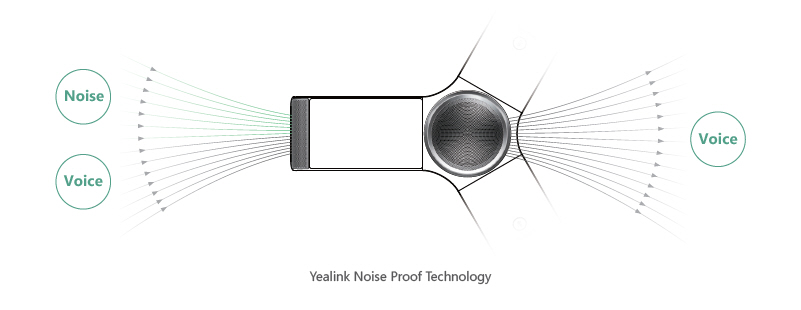Introduction
In today's fast-paced and interconnected business world, having a reliable and efficient phone system is crucial for the success of small businesses. Traditional phone systems can be costly and cumbersome to maintain, making them less than ideal for small businesses with limited resources. That's where cloud phone systems come in. A cloud phone system, also known as Voice over Internet Protocol (VoIP) phone service, offers numerous advantages that can help small businesses streamline their communication processes, enhance productivity, and reduce costs.
The Advantages of a Cloud Phone System for Small Businesses
1. Cost-Effectiveness
One of the biggest advantages of a cloud phone system for small businesses is its cost-effectiveness. Unlike traditional phone systems that require expensive hardware installations and maintenance fees, cloud phone systems operate virtually through the internet. This eliminates the need for physical infrastructure, resulting in significant cost savings. Additionally, many cloud phone service providers offer affordable monthly subscription plans tailored to the needs and budget of small businesses.
2. Scalability
Small businesses often experience fluctuations in their communication needs as they grow and evolve. With a traditional phone system, scaling up or down can be a complicated and costly process. However, with a cloud phone system, scalability becomes effortless. Small businesses can easily add or remove users, features, or extensions as needed without any additional hardware requirements or service disruptions.
3. Flexibility and Mobility
Cloud phone systems offer unparalleled flexibility and mobility for small businesses. With traditional phone systems, employees are tied to their desk phones within the office premises. However, with a cloud phone system, employees can make and receive calls from anywhere with an internet connection using their mobile devices or laptops. This enables remote working capabilities and allows employees to stay connected even when they are away from the office.
4. Advanced Features
Cloud phone systems provide small businesses with a range of advanced features that can enhance their communication capabilities. These features include voicemail-to-email transcription, call forwarding, auto-attendants, call recording, conference calling, and more. By leveraging these advanced features, small businesses can present a professional image to clients and customers while improving overall efficiency and productivity.
5. Easy Integration
Integrating a cloud phone system with existing business applications and tools is seamless and straightforward. Cloud phone service providers often offer integrations with popular Customer Relationship Management (CRM) systems, email clients, and other business software. This integration enables small businesses to streamline their workflows, improve customer interactions, and gather valuable insights from call data analytics.
6. Reliability and Redundancy
Cloud phone systems are known for their high reliability and redundancy. Unlike traditional phone systems that rely on physical infrastructure vulnerable to outages or natural disasters, cloud phone systems operate through redundant data centers spread across multiple locations. This ensures uninterrupted service availability even in the event of an unexpected disruption.
Frequently Asked Questions (FAQs)
Q1: What is a cloud phone system?
A1: A cloud phone system, also known as Voice over Internet Protocol (VoIP) phone service, is a communication solution that operates virtually through the internet instead of relying on traditional physical infrastructure.
Q2: How does a cloud phone system benefit small businesses?
A2: Cloud phone systems offer cost-effectiveness, scalability, flexibility, advanced features, easy integration with existing tools, reliability, and redundancy for small businesses.

Q3: Is it easy to switch from a traditional phone system to a cloud phone system?
A3: Yes, transitioning from a traditional phone system to a cloud phone system is relatively easy. Most cloud phone service providers offer assistance during the migration process to ensure a smooth transition.
Q4: Can I keep my existing phone numbers when switching to a cloud phone system?
A4: Yes, in most cases, cloud phone service providers allow businesses to port their existing phone numbers to the cloud system. This ensures continuity and minimizes disruption.
Q5: Are cloud phone systems secure?
A5: Cloud phone systems employ various security measures, such as encryption and authentication protocols, to protect sensitive data. However, it is essential for businesses to choose a reputable and reliable cloud phone service provider to ensure maximum security.
Q6: How can a cloud phone system improve customer interactions?
A6: Cloud phone systems offer features like auto-attendants, call recording, and voicemail-to-email transcription, which https://www.californiaentertainmentpress.com/article/730600484-soundcurve-launches-new-website-and-expands-voip-phone-services-in-oregon-california-and-nationwide can enhance customer interactions by providing prompt and efficient communication channels.
Conclusion
Investing in a cloud phone system can bring numerous advantages to small businesses. From cost-effectiveness and scalability to flexibility and advanced features, the benefits of a cloud phone system are undeniable. By embracing this modern communication solution, small businesses can streamline their operations, improve productivity, and enhance customer interactions. With the ever-increasing reliance on virtual communication, a cloud phone system is undoubtedly a valuable asset for small businesses aiming to thrive in today's competitive business landscape.